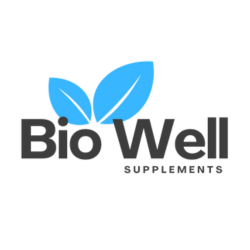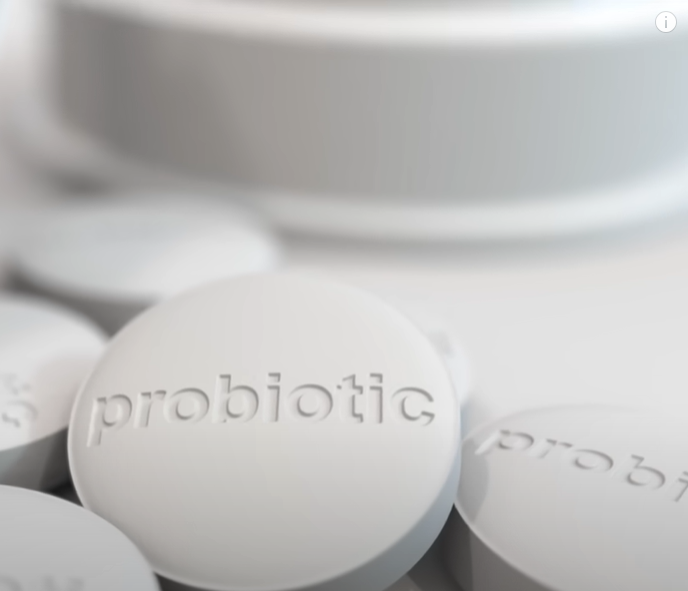In today’s fast-paced world, supplements have become a cornerstone for many seeking to enhance their health and fill nutritional gaps. However, with an overwhelming number of options available, knowing what to look for in supplements can be challenging. This guide breaks down key factors to look for in supplements, ensuring you choose safe, effective, and high-quality products. By understanding these principles, you’ll make informed decisions that support your health and wellness goals.
Why Supplements Matter
Supplements provide essential nutrients that might be missing from your diet due to lifestyle, dietary restrictions, or health conditions. From boosting immunity to improving mental clarity, they play a pivotal role in enhancing overall well-being. According to the National Institutes of Health (NIH), approximately 57% of adults in the U.S. use dietary supplements, highlighting their growing importance.
Beyond addressing deficiencies, supplements can target specific health goals, such as improving athletic performance, enhancing skin health, or managing chronic conditions. For instance, omega-3 fatty acids support cardiovascular health, while probiotics promote a balanced gut microbiome. Supplements also act as preventative measures against nutrient deficiencies that may lead to long-term health challenges such as osteoporosis or anemia. Moreover, their convenience allows individuals with busy lifestyles to maintain their nutritional intake without overhauling their diet.
What to Look for in Supplements
1. Third-Party Testing and Certifications
The first step in determining what to look for in supplements is ensuring they have been tested for quality and purity. Third-party certifications from organizations like NSF International, USP (United States Pharmacopeia), or Informed Choice guarantee that the product meets stringent standards and is free from harmful contaminants.
- Why It Matters: Third-party testing ensures that the label accurately reflects the product’s contents and that it is free from harmful substances like heavy metals or pesticides. It also confirms that the product adheres to Good Manufacturing Practices (GMP), ensuring consistent quality.
- Example: Look for a multivitamin with a USP certification for guaranteed potency and safety.
- Expert Insight: Certifications also verify the absence of banned substances, especially important for athletes subject to doping regulations.
Supplements with third-party certifications instill confidence that they are manufactured responsibly. Consumers can trust that the contents match the claims on the label, which is crucial for maintaining long-term health.
2. Transparent Ingredient Labels
One of the most critical factors in understanding what to look for in supplements is ingredient transparency. The supplement’s label should clearly list all active and inactive ingredients, their sources, and dosages.
- Key Features to Consider:
- No “proprietary blends” that obscure dosages.
- Clear identification of ingredient sources (e.g., plant-based vs. synthetic).
- Allergen information for those with sensitivities.
- Authority Site Reference: Examine consumer-focused resources like Examine.com for detailed analyses of common ingredients.
- Pro Tip: Opt for products that provide scientific references to support their claims.
Transparent labels also help consumers identify supplements that align with dietary restrictions or personal preferences, such as vegan or non-GMO certifications. Clear labeling can prevent accidental ingestion of allergens, ensuring the supplement is both safe and effective.
Additionally, supplements with transparent labels allow users to cross-check dosages with clinical guidelines, ensuring they’re neither underdosing nor exceeding safe intake levels.
3. Bioavailability
Bioavailability refers to how well your body can absorb and utilize the nutrients in a supplement. For maximum effectiveness, choose supplements designed with enhanced bioavailability, such as those containing chelated minerals or liposomal delivery systems.
- Examples:
- Curcumin supplements with black pepper extract (piperine) to enhance absorption.
- Magnesium glycinate, known for superior absorption compared to magnesium oxide.
- Liposomal vitamin C for improved cellular uptake.
- Why It Matters: High bioavailability ensures that you receive the full benefits of the supplement, reducing waste and maximizing results.
- Pro Tip: Combining supplements with food can sometimes enhance absorption. For instance, taking fat-soluble vitamins (A, D, E, K) with a meal containing healthy fats improves their uptake.
Supplements with poor bioavailability might pass through the body without delivering their intended benefits, effectively wasting both money and effort. Ensuring bioavailability is a crucial step in making supplements work effectively and when choosing a supplement.
4. Dosage and Potency
When determining what to look for in supplements, ensuring proper dosage is essential. The product should provide an effective dose backed by scientific research rather than a minimal amount designed solely to appear on the label.
- Research-Based Dosages: Refer to resources like the NIH’s Office of Dietary Supplements to verify recommended daily values and therapeutic dosages for specific conditions.
- Practical Example: If you’re taking vitamin D to address a deficiency, ensure the supplement provides at least 2,000 IU per serving, as recommended for therapeutic use.
Inadequate dosages can lead to poor results, while excessive dosages might cause toxicity. For instance, overconsumption of vitamin A can result in liver damage, highlighting the importance of balance and scientific backing.
For specific health conditions, dosage recommendations might differ. Consulting healthcare professionals ensures that the supplement’s potency aligns with your individual needs.
5. Avoidance of Harmful Additives
High-quality supplements should be free from unnecessary fillers, artificial colors, and preservatives. These additives can cause adverse reactions, especially in individuals with sensitivities.
- What to Avoid:
- Artificial sweeteners like aspartame.
- Titanium dioxide used as a whitening agent.
- Hydrogenated oils that may reduce absorption.
- Pro Tip: Opt for products labeled “clean,” “organic,” or “free from artificial additives.”
- Expert Insight: Natural flavorings or organic binders are preferable to synthetic alternatives.
Additive-free supplements are particularly beneficial for those with gastrointestinal sensitivities, as synthetic chemicals can exacerbate issues like bloating or discomfort. Choosing clean-label products also aligns with environmentally conscious purchasing habits.
6. Reputation of the Brand
When researching what to look for in supplements, the brand’s reputation is a key consideration. Reputable brands invest in quality control, research, and transparency.
- Trusted Brands:
- Thorne Research: Known for rigorous testing and bioavailable formulations.
- Garden of Life: Offers organic, whole-food-based supplements.
- Nordic Naturals: Highly regarded for omega-3 fish oil purity.
- Authority Site Reference: Visit Labdoor.com for third-party rankings of supplement brands.
- Pro Tip: Check the brand’s manufacturing certifications and customer reviews for additional assurance.
Established brands often have decades of research and a commitment to ethical practices, ensuring consistent quality. Trustworthy companies also provide detailed explanations of their ingredient sourcing, adding credibility to their claims.
7. Personalized Recommendations
Personalized supplementation is a growing trend when choosing supplements, leveraging advancements in DNA testing and health assessments. Companies like Persona Nutrition and Care/of use quizzes and health data to recommend tailored supplement regimens.
- Why It Matters: Supplements tailored to your unique needs ensure maximum effectiveness and reduce the risk of taking unnecessary products.
- Example: A DNA test revealing a predisposition to vitamin D deficiency could guide you to select high-potency vitamin D3 supplements.
- Future Insight: As wearable technology advances, real-time health monitoring could further refine personalized supplementation.
Personalized regimens not only optimize health benefits but also minimize waste by targeting precise needs rather than generic approaches. This trend aligns with the future of preventative health care.
8. Consider Your Health Goals
Your specific health goals should guide your supplement choices. For instance:
- For Stress Relief: Look for adaptogens like ashwagandha or Rhodiola rosea.
- For Muscle Recovery: Opt for whey protein or branched-chain amino acids (BCAAs).
- For Immune Support: Consider vitamin C, zinc, and elderberry extract.
- Authority Site Reference: The NIH offers extensive resources on how supplements support various health conditions.
- Practical Advice: Keep a health journal to track how supplements impact your goals over time.
Customized supplements for specific goals enhance adherence and motivation. Tracking progress allows users to adjust dosages or combinations based on measurable outcomes.

9. Allergen and Dietary Compatibility
Always check the supplement label for allergen information and compatibility with your dietary preferences when looking at supplements. Common allergens include soy, gluten, dairy, and shellfish.
- Examples of Allergen-Free Options:
- DEVA Vegan Multivitamin for plant-based users.
- Pure Encapsulations supplements, which are hypoallergenic.
- Pro Tip: Look for certifications like “Vegan Certified” or “Gluten-Free Verified.”
For individuals with complex dietary needs, allergen-free and dietary-specific supplements ensure both safety and efficacy. These products cater to an inclusive audience, making supplementation accessible to everyone.
10. Cost vs. Quality
While affordability is important, focusing on quality ensures better health outcomes. High-quality supplements with proven efficacy are a more valuable investment than low-cost alternatives with questionable benefits.
- Tips to Manage Costs:
- Buy in bulk or subscribe to auto-delivery services for discounts.
- Compare the “per serving” cost instead of the overall price.
- Expert Insight: Evaluate the cost-to-benefit ratio by considering how well the supplement meets your health needs.
Budget-friendly strategies include exploring loyalty programs or bundling supplements from the same brand. Cost-conscious purchasing should never compromise on essential certifications or quality indicators.
How to Evaluate Supplement Claims
Understanding what to look for in supplements also involves recognizing red flags in marketing claims. Be cautious of phrases like “miracle cure” or “guaranteed results.” Instead, prioritize supplements backed by clinical trials and peer-reviewed research.
- Authority Site Reference: Use PubMed to search for studies on specific supplements.
- Pro Tip: Search for systematic reviews that aggregate findings from multiple studies for comprehensive insights.
Evidence-backed claims foster trust and ensure that consumers select supplements with proven benefits rather than falling prey to false advertising. Reliable resources like PubMed add scientific legitimacy to purchasing decisions.
Conclusion
Knowing what to look for in supplements ensures you choose products that align with your health goals while prioritizing safety and efficacy. From checking third-party certifications to understanding ingredient bioavailability, these strategies empower you to make informed decisions in a crowded market.
By following the guidelines in this article and leveraging trusted resources, you can confidently navigate the world of dietary supplements and enhance your journey to optimal health. Remember, quality always trumps quantity when it comes to supporting your well-being.
Investing in the right supplements isn’t just about meeting nutritional needs; it’s about achieving long-term wellness and vitality. Use these principles as your compass to make smarter, healthier choices for a better you. If you are ready to dig deeper, check out this guide on supplements.


